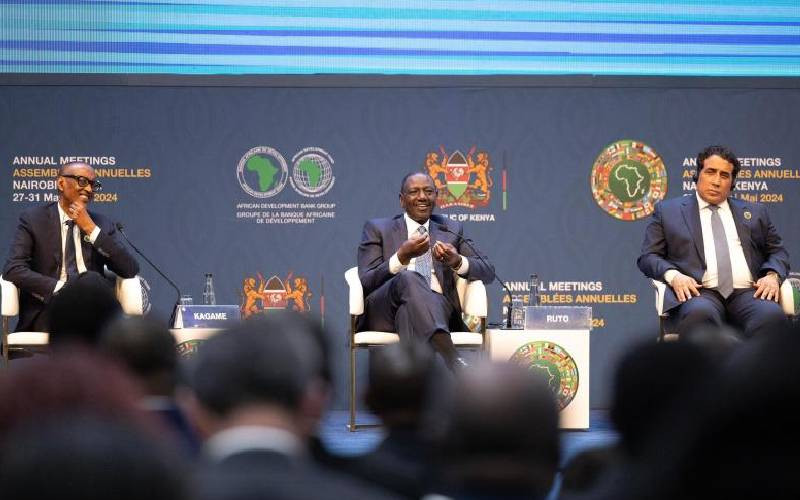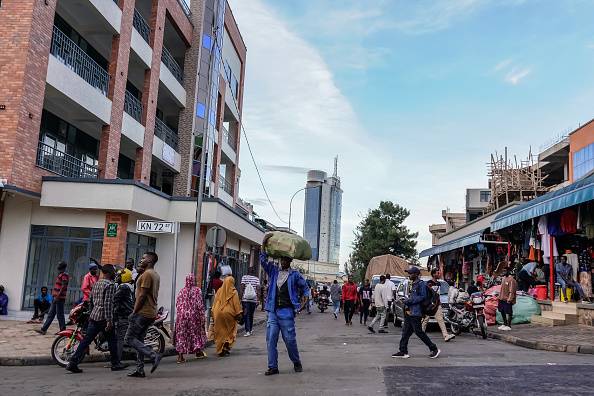African leaders have called for the need for collective climate equity and reforms within the global financial system to propel Africa towards sustainable development.
Speaking during the just-ended 59th annual meeting of the African Development Bank Group (AfDB), the leaders highlighted the challenges faced by African countries, including high financing interest rates, climate shocks, and constrained government revenues.
President William Ruto who delivered a keynote address, stressed the urgency of reshaping the international financial architecture to address destabilising debt and climate vulnerabilities in Africa.
Ruto said high financing interest rates, climate shocks, and constrained government revenues hindered investment in low-carbon and climate-resilient development, calling for a more responsive and fairer international development financial system to ensure climate action and sustainable development goals are met.
Presidents Denis Sassou Nguesso of Congo, Paul Kagame of Rwanda, Emmerson Mnangagwa of Zimbabwe, Hassan Sheikh Mohamud of Somalia, and Mohamed Menfi of Libya, along with other high-ranking officials from Burundi, Namibia, Niger, and the African Union Commission attended the conference.
President Ruto emphasised the necessity of raising resources for infrastructure and industrialisation to spur rapid economic growth in Africa. However, he criticised the current global financial architecture for being misaligned with Africa’s aspirations and labeled the tendency to brand Africa as a risky borrower as contradictory, given its vast potential in various sectors.
In addition to financial reform, Ruto called for intra-African trade barriers to be addressed through initiatives like the African Continental Free Trade Area Agreement.
President Kagame echoed the urgency for a new global financial architecture aligned with Africa’s interests and urged swift African Union reforms to foster continental integration and economic growth.
President Nguesso commended the AfDB for its infrastructural projects but stressed the need for further investment in basic infrastructure to unlock Africa’s full potential, particularly in facilitating intra-African trade.
Dr Akinwumi Adesina, President of the AfDB, emphasised the bank’s commitment to reforming the global financial architecture to better cater to Africa’s development needs. He announced significant progress in mobilising $25 billion for climate financing, with 45 per cent of the bank’s total lending dedicated to climate initiatives last year.
National Treasury Cabinet Secretary Njuguna Ndung’u lauded the AfDB’s support for Africa’s development ambitions, citing its significant contributions to economic growth, job creation, improved incomes, and better living conditions across the continent.
Overall, the AfDB meetings served as a platform for African leaders to rally behind climate equity and financial reform, emphasizing the importance of collective efforts in ushering in a new era of prosperity and sustainability for Africa.




















Discussion about this post